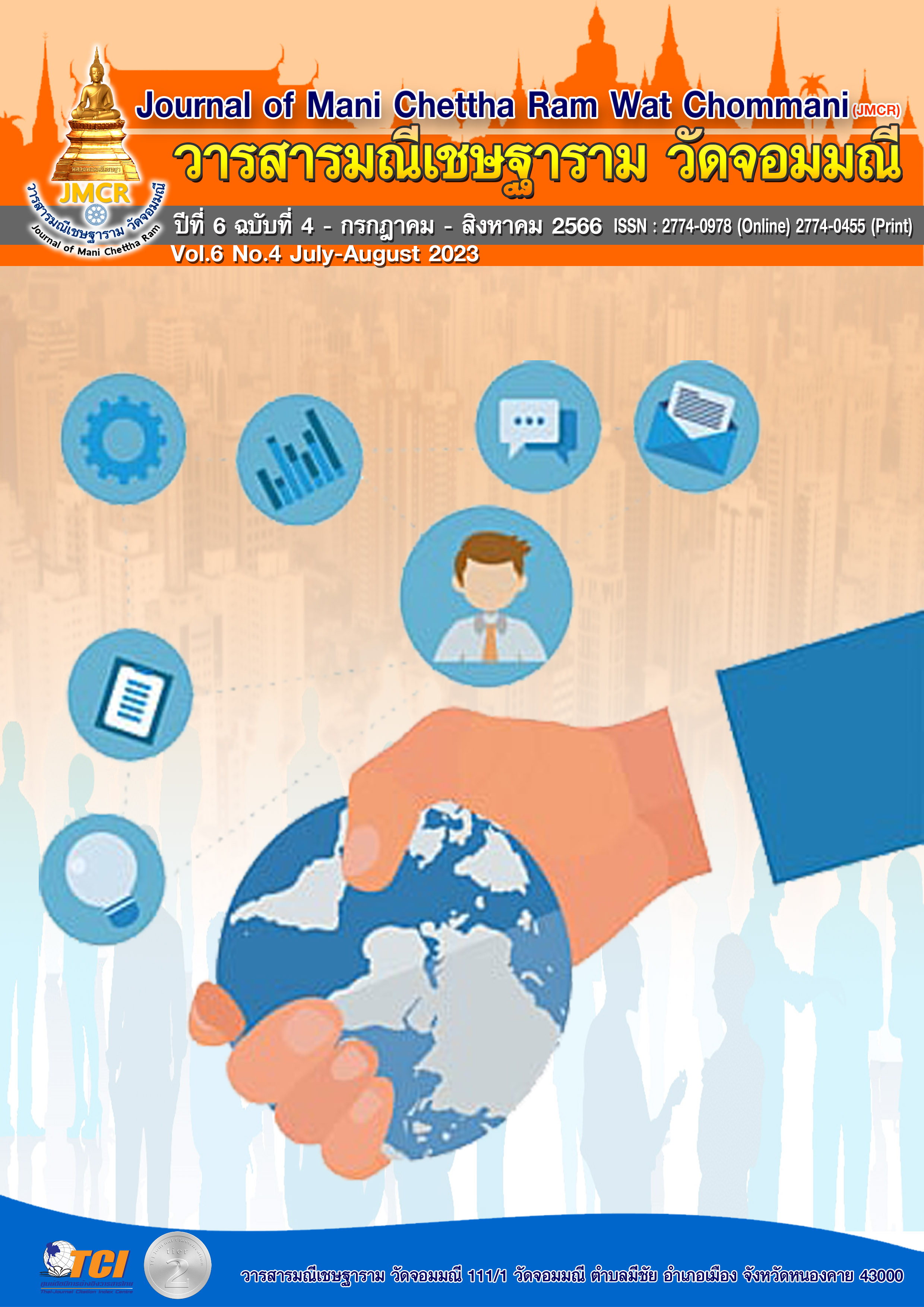GUIDELINES FOR ENHANCING THE CONFIDENCE OF THAI TOURISTS TOWARDS HEALTH AND SAFETY (SHA) STANDARDS IN THE HOTEL AND ACCOMMODATION INDUSTRY DURING THE EPIDEMIC OF THE CORONA VIRUS (COVID-19) IN HUA HIN DISTRICT, PRACHUAP KHIRI KHAN PROVINCE
Keywords:
Confidence, Health Safety Standards, Coronavirus DiseaseAbstract
This mixed-method research aimed to: 1) Confidence of tourists as a whole was at a high level 2) Compare the opinions towards the confidence of tourists Classified by personal characteristics, 3) health safety standards (SHA) that have a causal relationship with tourist confidence, and 4) ways to enhance tourist confidence. The sample group consisted of 384 Thai tourists and 10 key informants. Data were analyzed by using percentage, mean, standard deviation, t-test, one-way ANOVA, multiple regression, and content analysis.
Research results: 1) Confidence of tourists was at a high level. 2) Personal characteristics such as different ages and occupations. There are different opinions on the confidence of tourists. 3) Health safety standards (SHA) in terms of hygiene standards in terms of having public relations media and providing knowledge There is a causal relationship with tourist confidence. There was a statistical significance at the 0.001 level. There was a statistical significance at the 0.01 level in terms of location and equipment. with statistical significance at the level of 0.05 and 4) guidelines for enhancing the confidence of tourists, it was found that SHA standards that have been inspected and certified by government agencies should be announced. It is a sign for tourists to know about measures and procedures. Increase measures for service and product quality in the workplace. Maintain standards at all times Helping tourists in every way Dimensions go beyond measures to create safety for tourists.
References
การท่องเที่ยวแห่งประเทศไทย. (2565). แผนการดำเนินงานโครงการแนวทางความปลอดภัยด้านสุขอนามัย.
เรียกใช้เมื่อ 22 มีนาคม 2566 จาก http://123.242.157.9/document/fpdf-27052563-21.pdf
ปุญญาพร บุญธรรมมา. (2563). คุณภาพการบริการและพฤติกรรมการเข้าพักที่มีผลต่อความตั้งใจในการใช้บริการโรงแรมขนาดกลางใน อำเภอเมือง จังหวัดพิษณุโลก. ใน วิทยานิพนธ์บริหารธุรกิจมหาบัณฑิต มหาวิทยาลัยนเรศวร.
วิไลพรรณ ใจวิไล และเกศรา สุกเพชร. (2566). ปัจจัยที่สัมพันธ์กับพฤติกรรมการเลือกใช้บริการในธุรกิจการท่องเที่ยวเชิงสุขภาพของนักท่องเที่ยวผู้สูงอายุไทย ในสถานการณ์การแพร่ระบาดของโรคโควิด 19. วารสารปัญญาภิวัฒน์, 15(1), 158-176.
ศุภัตรา ฮวบเจริญ. (2565). แนวทางการสร้างความเชื่อมั่นต่อการท่องเที่ยวในภาวะวิกฤตโรคระบาด. วารสารการบริการและการท่องเที่ยวไทย, 17(1), 46-59.
สยามรัฐ. (2563). ประจวบฯ ชูหัวหินเมืองแห่งความสุข ขานรับนโยบายรัฐบาลฟื้นฟูการท่องเที่ยวกระตุ้นเศรษฐกิจหลังโควิด-19 คลี่คลาย. เรียกใช้เมื่อ 29 มีนาคม 2566 จาก https://siamrath.co.th/n/188746.
Cochran, W.G. (1953). Sampling Techiques. New York : John Wiley & Sons. Inc.
Morgan, R. M., & Hunt, S. D. (1994). The commitment-trust theory of relationship marketing. Journal of Marketing Research, 58(3), 20-38.
Puttachard Lunkam. (2564). ธุรกิจท่องเที่ยวและโรงแรมหลัง COVID-19. เรียกใช้เมื่อ 29 มีนาคม 2566 จาก https://www.krungsri.com/th/research/research-intelligence/ri-future-of-tourism-21.




